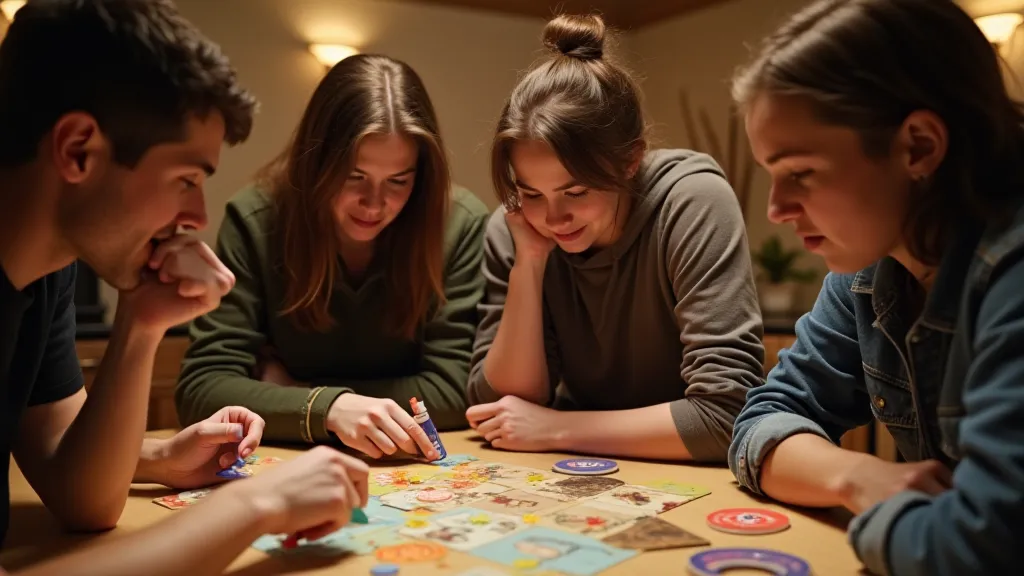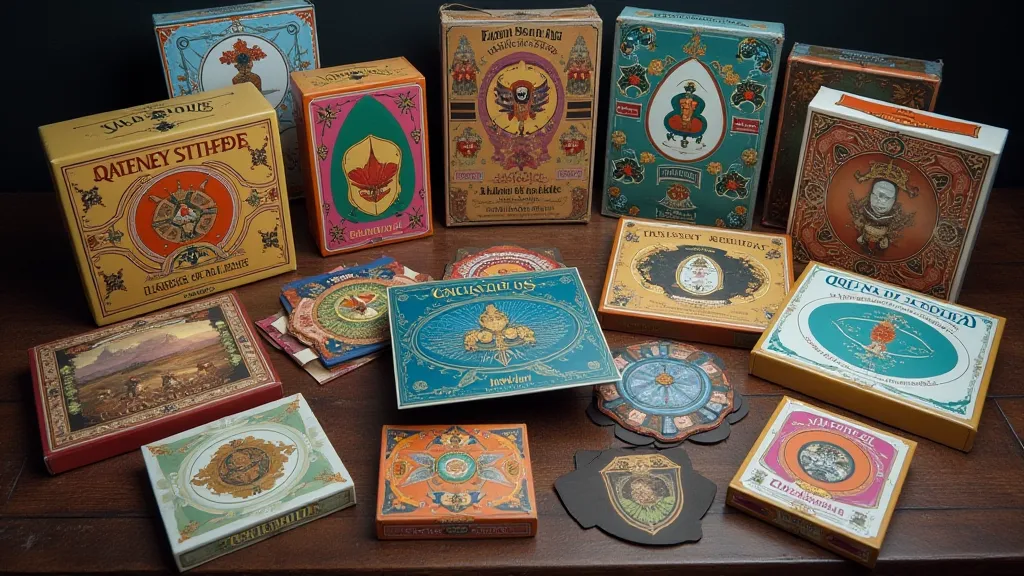The Rise of Legacy Games: A Deep Dive into Narrative Board Gaming
For years, board games were largely about resetting. You finished, you packed up, and everything returned to its starting state, ready for the next play. Then came the revolution: legacy games. These aren't just about playing a game; they're about experiencing a story, with your choices permanently shaping the game world and altering the rules themselves. Let's explore why legacy games have become such a significant phenomenon in the tabletop gaming scene.
What Makes a Legacy Game "Legacy"?
The core concept of a legacy game is that actions taken during gameplay have lasting consequences. This goes beyond simply keeping score; it involves physically altering the game components – writing on cards, tearing up pieces, adding stickers, and even destroying elements entirely. These changes reflect the narrative progression and influence subsequent plays. Each session builds upon the previous, creating a unique and evolving experience for every player.

Early Pioneers and Defining Moments
While the concept of evolving game states has existed in tabletop RPGs for decades, Pandemic Legacy: Season 1 (2015) is widely credited with popularizing the legacy game format for a wider audience. The initial success of Pandemic Legacy spawned a series and opened the floodgates for countless other developers to explore the genre. Games like Gloomhaven: Jaws of the Lion took the legacy element to another level, incorporating deck-building and character progression within the evolving narrative.
Why are Legacy Games so Appealing?
The enduring popularity of legacy games stems from several key factors:
- Narrative Depth: Legacy games offer a level of narrative immersion rarely found in traditional board games. The story unfolds organically through gameplay, making players feel truly invested in the outcome.
- Player Agency: Decisions matter. There’s a sense of ownership and responsibility as players’ choices directly impact the game world.
- Replayability (or Lack Thereof): While traditional board games offer endless replayability, legacy games are designed to be experienced once. This creates a sense of urgency and makes the journey all the more precious.
- Community Building: Legacy games are often best experienced with a dedicated group of players, fostering a sense of shared history and accomplishment.
Top Legacy Games to Check Out
Ready to dive into the world of legacy gaming? Here are a few highly-regarded titles:
- Pandemic Legacy: Season 1, 2, & 0: The games that started it all. A cooperative race against disease outbreaks, with significant consequences for your choices.
- Gloomhaven: Jaws of the Lion: A streamlined entry point to the acclaimed Gloomhaven universe, featuring character progression and tactical combat.
- Clank! Legacy: Acquisitions Incorporated: A deck-building adventure with a humorous narrative and constantly shifting goals.
- T.I.M.E Stories: A narrative-driven game where players act as agents travelling through different time periods to solve mysteries.
- Legacy of Etharis: A fantasy legacy game that focuses on exploration and roleplaying.

The Future of Legacy Gaming
The legacy game genre continues to evolve, with developers experimenting with new mechanics and narrative structures. We're seeing more “one-shot” legacy experiences – games designed to be played through once and then discarded, focusing on a self-contained story. Hybrid legacy games, blending legacy mechanics with other popular board game genres, are also gaining traction. The ongoing success of the genre demonstrates its power to create unique, memorable, and truly transformative gaming experiences.
Considerations Before Embarking on a Legacy Campaign
Before committing to a legacy game, it’s important to be aware of a few things:
- Commitment: Legacy games require a significant time investment and commitment from all players.
- Group Size: Many legacy games are designed for specific player counts; make sure everyone in your group is on board.
- Destructibility: Be prepared to permanently alter the game components. This is an integral part of the experience!
- Spoilers: Avoid discussing the game with those who haven’t played it, as spoilers can significantly diminish the impact of the narrative.






